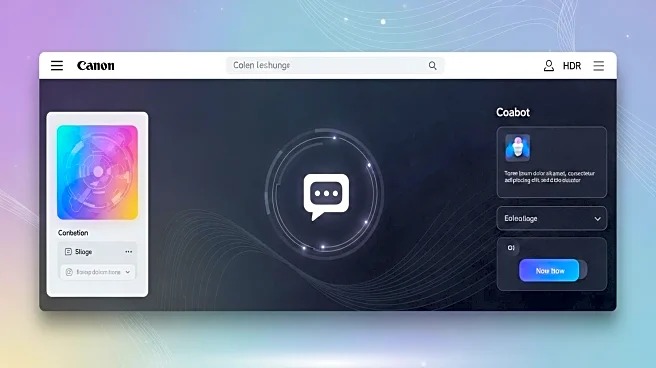What's Happening?
The AI startup 'Friend' has transitioned from its original product, a wearable pendant, to a web-based chatbot interface. This shift comes after the company's ad campaign faced defacement in New York City's subway system. The pendant, priced at $129, was criticized for its always-listening feature, which raised privacy concerns similar to those associated with Google Glass. The web interface allows users to engage with the chatbot for free, potentially increasing accessibility and user engagement. Friend CEO Avi Schiffmann claims the pivot has attracted 200,000 users, though this figure may include individuals who have only initiated a chat without sustained interaction or conversion to pendant purchases.
Why It's Important?
The pivot to a web-based interface reflects broader trends in AI technology, where accessibility and user privacy are increasingly prioritized. By moving away from a physical device, 'Friend' may reduce barriers to entry and address privacy concerns, potentially expanding its user base. This development highlights the challenges AI companies face in balancing innovation with public acceptance and ethical considerations. The shift could influence other AI startups to reconsider their product strategies, focusing on user-friendly and privacy-conscious solutions.
What's Next?
The success of 'Friend's' web-based chatbot will depend on its ability to retain users and convert them into paying customers. The company may need to refine its marketing strategy to emphasize the benefits of its AI interactions while addressing privacy concerns. As the AI industry evolves, 'Friend' may face competition from other startups offering similar services, prompting further innovation and adaptation. Stakeholders, including investors and users, will likely monitor the company's progress and response to public feedback.
Beyond the Headlines
The ethical implications of AI technologies that simulate relationships are significant. As 'Friend' continues to develop its chatbot, questions about the impact on social interactions and mental health may arise. The company's marketing approach, which embraces controversy, could influence public perception and acceptance of AI-driven companionship. Long-term, this could lead to discussions about the role of AI in human relationships and the potential need for regulatory oversight.









